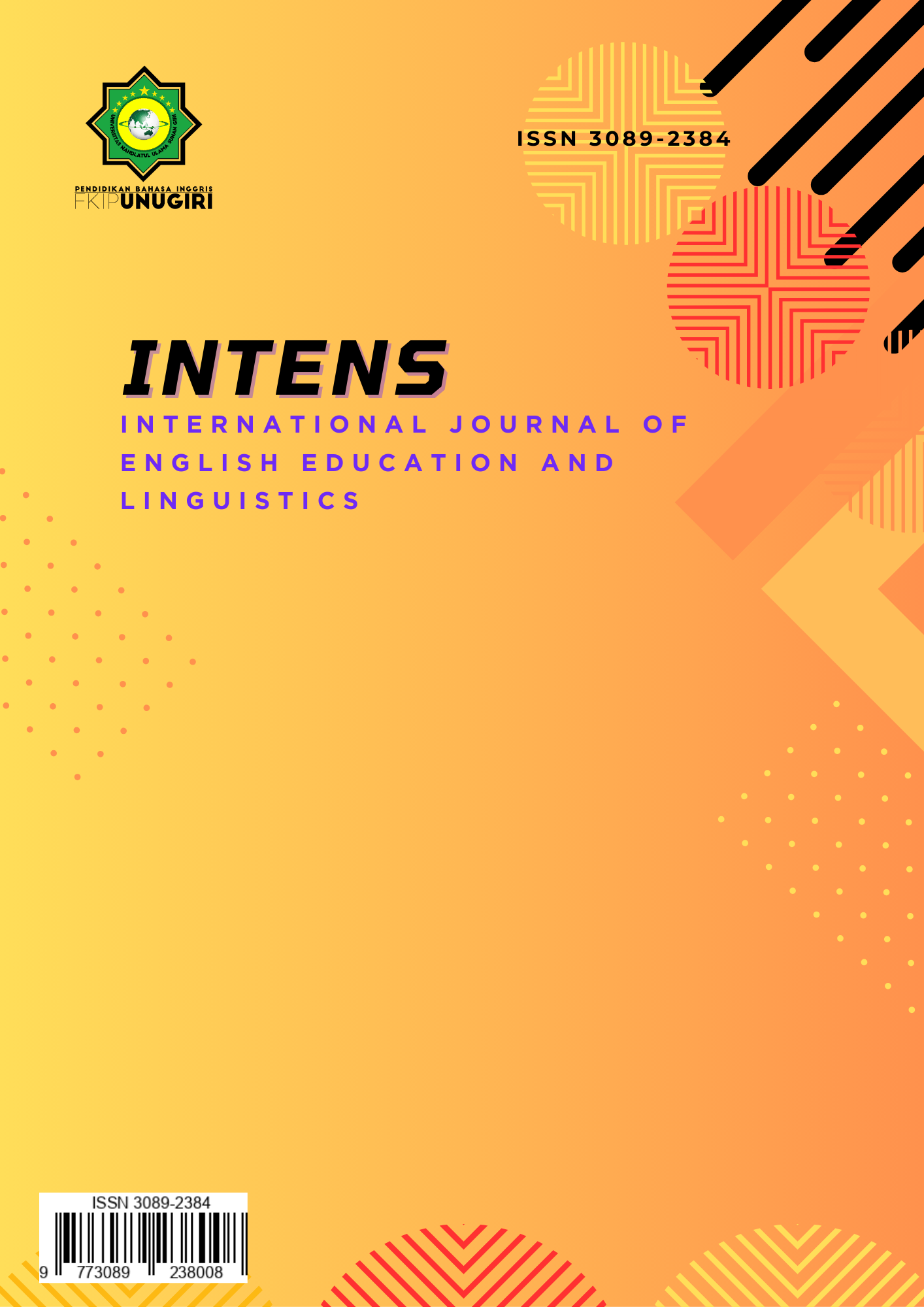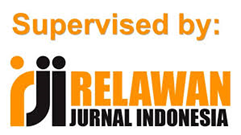Exploring University EFL Learners' Experiences in Using Podcasts for Listening and Vocabulary Development
Podcasts for Listening and Vocabulary Development

DOI:
https://doi.org/10.32665/intens.v2i02.5145Abstract
This explanatory sequential mixed-methods study investigates university EFL learners' experiences with podcast-based learning for listening comprehension and vocabulary acquisition. The research addresses three key questions: (1) how learners utilize podcasts, (2) challenges encountered, and (3) effective learning strategies. Quantitative data collected from 20 participants revealed YouTube as the dominant platform (95%), with speech speed (65%) and accents (35%) as primary barriers. Qualitative interviews with 8 selected participants uncovered three adaptive strategies: segment repetition (55%), transcript utilization (50%), and vocabulary journaling. Analysis demonstrated significant improvements in listening proficiency (80% of users) and vocabulary retention (95%), particularly when podcasts incorporated scaffolding features. The study highlights the pedagogical value of podcasts as authentic input sources while emphasizing the need for speed-adjustable content, culturally familiar topics (preferred by 60%), and integrated learning supports. These findings contribute to understanding autonomous language learning in digital environments, suggesting that podcast effectiveness depends on strategic use rather than mere exposure. Practical implications include recommendations for educators to incorporate structured podcast activities and for developers to create leveled content with multimodal supports. The research bridges theoretical frameworks of comprehensible input with contemporary digital learning practices in EFL contexts
References
Andajani, K., Pratiwi, Y., Suyitno, I., Prastio, B., & Maulidina, A. (2023). Challenges and Attitudes of L2 Students in Listening to Authentic Conversations Podcasts: A Case Study of Advanced Level BIPA Students. Eurasian Journal of Applied Linguistics, 9(3), 168–184. https://doi.org/10.32601/ejal.903015
Aprianto, D. (2024). EFL Students’ Attitudes towards the Use of Podcasts as a Language Learning Medium to Increase Learning Interest. SALEE: Study of Applied Linguistics and English Education, 5(1), 306–327. https://doi.org/10.35961/salee.v5i1.1218
Barjesteh, H., & Ghaseminia, M. (2023). Effects of Pre-Listening Task Types on the Development of Efl Learners’ Listening Comprehension Ability. International Journal of Listening, 37(2), 156–170. https://doi.org/10.1080/10904018.2019.1654867
Braun, V., & Clarke, V. (2019). Thematic analysis revised. Journal of Chemical Information and Modeling, 53(9), 1689–1699.
Chaves-Yuste, B., & de-la Peña, C. (2023). Podcasts’ effects on the EFL classroom: a socially relevant intervention. Smart Learning Environments, 10(1), 1–18. https://doi.org/10.1186/s40561-023-00241-1
Datin Hulliyany, P., Sultan, U., Hasanuddin, M., Alifhiani, S., Uin, N., & Uin, F. (2024). the Use of Podcast and Its Effectiveness in Elt: a Systematics Review. Adiba: Journal of Education, 4(3), 424–431.
Dianingsih, A., Dwi Prastyo, Y., & Farhana, S. (2023). Students’ Perception of Using Podcasts to Improve Listening Skills at the 3rd Semester Students of English Department at Universitas Bandar Lampung. J-SHMIC : Journal of English for Academic, 10(2), 175–181. https://doi.org/10.25299/jshmic.2023.vol10(2).11177
Elkot, M. A., Ali, R., Abdalgane, M., Youssif, E., & Aboraya, W. (2024). The Correlation of Podcast Storytelling Duration with Discussion Timing in Enhancing EFL Learners’ Listening Skills. International Journal of Modern Education and Computer Science, 16(6), 80–93. https://doi.org/10.5815/ijmecs.2024.06.06
Hakobyan, N. K. (2023). The Relationship Between Incidental Vocabulary Learning and Extensive Listening to Podcasts. International Journal of TESOL Studies, 5(2), 79–95. https://doi.org/10.58304/ijts.20230207
Krahnke, K. J., & Krashen, S. D. (1983). Principles and Practice in Second Language Acquisition. In TESOL Quarterly (Vol. 17, Issue 2). https://doi.org/10.2307/3586656
Li, Z., Surya, A., Ginting, D., & Ayatullah, I. F. (2024). Increasing listening skill by using podcast. 01.
Mukhtorova, M. (2024). Qo‘qon universiteti xabarnomasi kokand university herald вестник кокандского университета. 8–10.
Nikbakht, A., & Mazdayasna, G. (2023). The effect of video podcasts on learning English proverbs by Iranian EFL learners. Frontiers in Education, 8(October). https://doi.org/10.3389/feduc.2023.1193845
Oxford, R. (2019). Teaching and Researching Listening Skills. In Research-Driven Pedagogy. https://doi.org/10.4324/9781351043281-2
Rmelah, P. A., & Pornwiriyakit, P. (2023). Developing English Listening Skills for Comprehension Through Repetition Technique Using Podcast. Journal of Education and Learning, 12(6), 73. https://doi.org/10.5539/jel.v12n6p73
Samad, P., & Paris, N. (2022). The EFL Learners’ Listening Comprehension Through Western Song and The Strategies for Improvement. DIAJAR: Jurnal Pendidikan Dan Pembelajaran, 1(2), 185–189. https://doi.org/10.54259/diajar.v1i2.718
Schiff, T., Hedlin, M., & Al-Mondhiry, J. (2024). Listening “At the Bedside”: Podcasts as an Emerging Tool for Medical Ethics Education. Cambridge Quarterly of Healthcare Ethics, 1–12. https://doi.org/10.1017/S0963180124000471
Vuković-Stamatović, M., & Čarapić, D. (2024). Vocabulary profile, lexical density and speech rate in science podcasts: How appropriate are science podcasts for EAP and EST listening? Iberica, 2024(47), 201–225. https://doi.org/10.17398/2340-2784.47.201
Wang, C. (2024). Six-minute Flipped Classroom: The Effect of Using Podcasts and Collaborative Learning on Taiwanese Freshmen’s English Communicative Competence. Teaching English Language, 18(1), 1–23. https://doi.org/10.22132/tel.2024.444021.1571
Widodo, M. R., & Gunawan, A. (2019). Investigating The Effect of Using Podcast. LINGUA Jurnal Pendidikan Bahasa Fakultas Keguruan Dan Ilmu Pendidikan | Universitas Islam As-Syafi’iyah, 15(12), 35–42. https://uia.e-journal.id/Lingua/article/view/358
Yazmin, D., & Clara, I. (2024). Exploring the Effects of Using Podcasts on EFL College Students with Low English Proficiency Listening Comprehension. International Journal of Information and Education Technology, 14(2), 175–182. https://doi.org/10.18178/ijiet.2024.14.2.2038
 Pdf Download: 0
Pdf Download: 0













